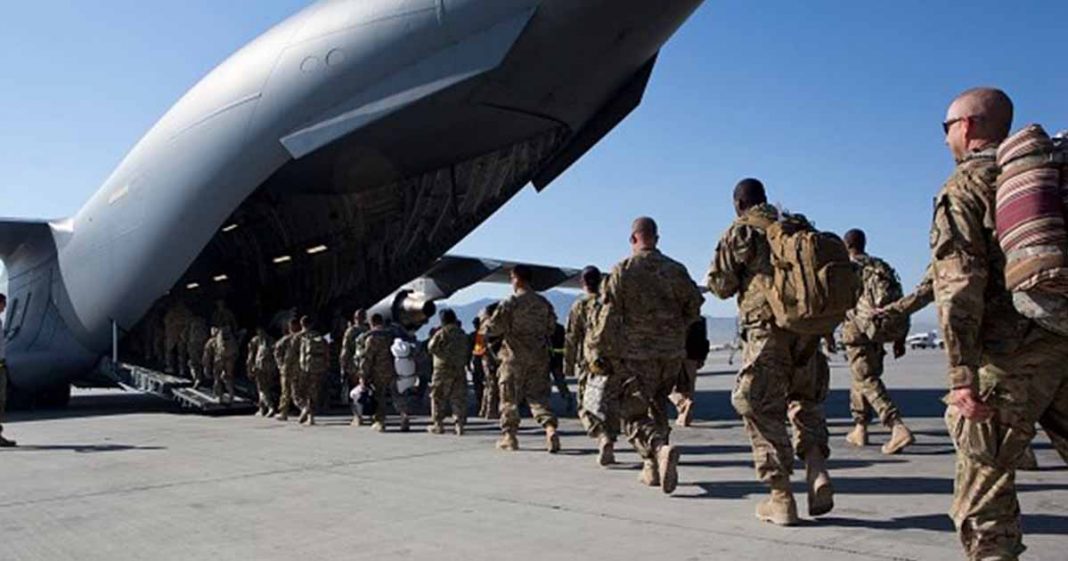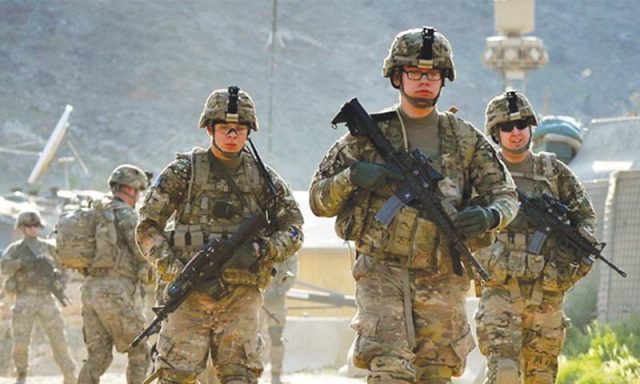The Afghan Taliban have won at last. It was only a matter of time. If someone refuses to give up in the face of overwhelming odds, they almost always end up overcoming those odds. The Taliban did this fundamentally because they learned to use their scarce resources effectively in their years of wilderness.
Thrift is hardwired into humans as a result of millennia of humankind’s struggle for survival. On the contrary, extravagance is a learned behavior. The Taliban used their meager resources well and carried the day, while the former Afghan regime used its comparatively greater resources extravagantly and lost it. Afghanistan is not only the proverbial graveyard of empires but it is also the best school of hard knocks.
Read more: US defeat in Afghanistan: Ending west’s dream of hegemony over Eurasian land mass?
Still, all is not lost for the U.S., even if the Afghan regime supported over a long time has crumbled. Some of the best policies have been known to come out of reverses. Germany and Japan’s post-Second World War reconstruction, recovery, and participation in the rules-based international order is a prominent example.
The Americans can still salvage the situation in Afghanistan, if they seek truth from facts, as the visionary Chinese leader, Deng Xiaoping, counseled when China was just embarking on its extraordinary experiment of reform and opening up in 1978. In this regard, the U.S. should consider doing four key things.
Is there a future of Afghanistan and the US as strategic partners?
First, the U.S. should try its best to complete the withdrawal of its forces as per the August 31 deadline. The Taliban have announced that overstaying, will have ‘consequences’. In such a situation, the Americans should be aware of the fact that their bona fides are going to be judged by the world by how assiduously they follow this deadline, as the failure to do so will further complicate an already difficult situation. If it is not possible, then the U.S. should make a formal request to the Taliban leadership, preferably by President Biden himself, to grant the extension for the withdrawal to be completed satisfactorily.
If the Taliban agree and in return ask the U.S. troops in Afghanistan to disarm as a precondition for granting the extension, the U.S. should do so to more effectively focus on withdrawal. This would essentially make the Taliban responsible for the safety of the U.S. troops, and it is certain that the strict code of honor of the Taliban will not let them harm unarmed personnel whose safety they have become responsible for. This may be a win-win for everyone if considered coolly. In this regard, the U.K., commanding a deep knowledge of Afghanistan due to its historic involvement in the country, should reassure the U.S. about the value and place of honor in Afghanistan.
Read more: Afghanistan: Implications of a global failure for US and Pakistan! – Gen Tariq Khan
Second, post-withdrawal, and provided the Taliban succeed in making an inclusive and tolerant government that represents diverse Afghan groups and interests, the U.S. should, as part of its new Afghan strategy, enter into a sense of peace, development, and security, especially counterterrorism, partnership with the future Taliban government. This partnership should focus on economic assistance, poverty alleviation, and development capacity building.
Third, the U.S. should try to decouple Afghanistan from its competition with China. Doing so will simplify the situation and enable strategic decluttering. Failure to decouple will result in captive decision making which is almost always iatrogenic. It is understandable that the U.S. feels worried about the recent changes in its relative position in the world, but tying everything to its competition with China can not help reverse this change. If anything, it may accelerate the change process.
Instead, the U.S. needs to focus on rebuilding the domestic foundations of its national power to maintain its global standing. The inherent advantage the U.S. enjoys in this respect is that it has done it before. America’s rise as a great power between 1880 and 1910 was precisely the process of consolidation of domestic development and maximization of the national sources of sustained growth.
Such an invaluable experience should not become redundant now when it is needed more than ever. China may in fact be of assistance in the process of national reinvigoration. If this happens, this may be a real win for the U.S. The world, like China and the U.S. themselves, will profit more from their cooperation rather than from competition.
Read more: How do Russia, Pakistan, China, Iran and India view the Taliban’s rise in Afghanistan?
Fourth, the U.S. should realize that the Taliban after all may not be that different from them in at least four important ways. The thought may cause consternation to many at first, but staying with it will lead to the sanguine realization of its merit, out of which may stem the desire to take positive actions that may make U.S.-Taliban cooperation possible in the future. One, from the standpoint of international relations, the Taliban, like the U.S., is a status-quo force. It is evident that they don’t have any geopolitical ambitions beyond the borders of their country.
Looking at the commonalities between Taliban and the US
Come to think of it, they did not have any such designs even during their previous draconian stint in power between 1996 and 2001. Two, the Taliban, like all Afghans, love their freedom as fiercely as the U.S. does. Both fight to defend it and prize it above everything else. Three, the actions of both are rule-governed. If the U.S. claims to uphold the rules-based international order, the Taliban strictly adhere to their code of honor, and keeping their word is a part of this code.
Both unfailingly take swift action when they perceive rules they hold dear have been flouted. Four, both are highly resourceful. The American spirit of enterprise is proverbial. The making of America is indeed an instructive chapter of the history of human civilization. Likewise, the Taliban also started with nothing but took control of their country through sheer grit and perseverance. These commonalities should resonate with both.
Read more: US, Pakistan and Afghanistan: A Peace Deal that ALMOST happened
To ensure peace and stability, a farsighted and balanced response is expected of the U.S. in the current Afghan situation. The four steps proposed above can help the U.S. move with the momentum of the situation to help build lasting peace in Afghanistan.
The writer heads research and analysis at the NUST Institute of Policy Studies. He has previously served as the Head of Research and Fellow at the Global Think Tank Network. He can be reached at ali.shah78@gmail.com. The views expressed in this article are the author’s own and do not necessarily reflect Global Village Space’s editorial policy.














